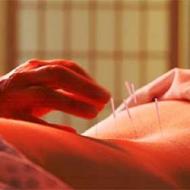
Acupuncture found to lower elevations in blood pressure

Acupuncture treatments using low levels of electrical stimulation can lower elevations in blood pressure by as much as 50 percent, researchers at the Susan Samueli Center for Integrative Medicine at UC Irvine have found.
In tests on rats, the researchers found that electroacupuncture treatments provided temporary relief from the conditions that raise blood pressure during hypertensive states. Such treatments, they believe, potentially can become part of a therapeutic regimen for long-term care of hypertension and other cardiovascular ailments in people. “This study suggests that acupuncture can be an excellent complement to other medical treatments, especially for those treating the cardiac system,” said Dr. John C. Longhurst, director of the Samueli Center and study leader. “The Western world is waiting for a clear scientific basis for using acupuncture, and we hope that this research ultimately will lead to the integration of ancient healing practices into modern medical treatment.” They have found that when an acupuncture needle is inserted at specific sites on the wrist, inside of the forearm or leg, this triggers the release of opioid chemicals in the brain that reduce excitatory responses in the cardiovascular system. This decreases the heart’s activity and its need for oxygen, which in turn can lower blood pressure, and promotes healing for a number of cardiac ailments, such as myocardial ischemia (insufficient blood flow to the heart) and hypertension. In this study, the Longhurst team applied acupuncture to specific points on the forelimb of test rats with artificially elevated blood pressure rates; these same sites on humans are on the inside of the forearm slightly above the wrist. The researchers found that acupuncture alone had no effect on blood pressure. Next, they added electrical stimulation to the acupuncture treatment by running an electrical current through the needles. High frequencies of stimulation also had no effect, but low frequencies lowered increased blood pressure by as much as 40 to 50 percent. Overall, the researchers found that a 30-minute treatment reduced blood pressure rates in these test rats by 25 mmHg – with the effect lasting almost two hours. “This type of electroacupuncture is only effective on elevated blood pressure levels, such as those present in hypertension, and the treatment has no impact on standing blood pressure rates,” said Longhurst, a cardiologist who is also the Lawrence K. Dodge Professor in Integrative Biology. “Our goal is to help establish a standard of acupuncture treatment that can benefit everyone who has hypertension and other cardiac ailments.”
Journal of Applied Physiology
Other News




